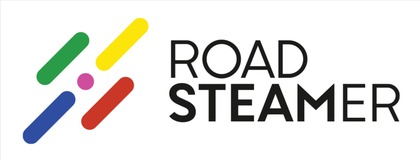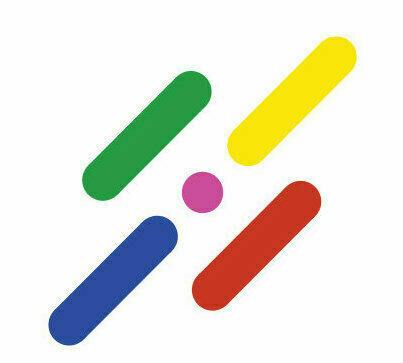STEAM Roadmap for Science Education in Horizon Europe
Provide your feedback and suggestions
Modifiche a "Systematic organization of open-access STEAM teaching material, practices and assessment, identification of gaps and development in all EU languages"
Corpo del testo
-
-["
- Description
- STEAM material mapping, systematic organization, identification of gaps and development of open educational resources (including modules to be integrated into courses as well as holistic STEAM curricula) to be provided in a user-friendly platform, co-created with teachers and lecturers of diverse educational levels, organized by relevant variables (educational level, language, disciplines, time, inclusivity level, etc.). These materials should prioritise pedagogical relevance, ensuring they are meaningful rather than solely engaging or performative and based on real-life challenges and skills development (instead of knowledge-centred education), according for example to the EU “Lifecomp”and related to a range of careers exploration (in collaboration with external stakeholders including companies and governmental organizations). Starting by gathering already existing resources and making them accessible (in different languages) currently under-utilised resources from previous projects, including EU-funded initiatives, should be systematized in a one-stop-shopdigital space where lecturers can easily find materials, share, find peer-to-peer support and provide feedback on pedagogical effectiveness and evidence from assessment that takes into account AI implications for learning and assessment.
- Relevant for
-
🔵 Research (DG RTD)🟡 Education (DG EAC)🟢 ICT and digital (DG CNECT)
- Examples
- Potential funding instrument
- Erasmus+
- Suggested time frame
- 2026-27
- Alignment with STEM Education Strategic Plan 2025
- It can support the STEM Panel, and expand it to include STEAM practices (3.2 pg. 8, “In 2025, set up a European STEM Executive Panel at top business/political/administrative level to advise on strategic issues including curriculum modernisation, industry feedback on skills needs across industrial sectors, innovative teaching and content, and embedding academic-business cooperation in STEM education. The STEM Panel would provide actionable recommendations to foster close cooperation between business and STEM education to the European Skills High Level Board and make the results of its work publicly available to any other interested party”.)
-
+["
- Relevant for
-
🔵 Research (DG RTD)🟡 Education (DG EAC)🟢 ICT and digital (DG CNECT)
- Description
- STEAM material mapping, systematic organization, identification of gaps and development of open educational resources (including modules to be integrated into courses as well as holistic STEAM curricula) to be provided in a user-friendly platform, co-created with teachers and lecturers of diverse educational levels, organized by relevant variables (educational level, language, disciplines, time, inclusivity level, etc.). These materials should prioritise pedagogical relevance, ensuring they are meaningful rather than solely engaging or performative and based on real-life challenges and skills development (instead of knowledge-centred education), according for example to the EU “Lifecomp”and related to a range of careers exploration (in collaboration with external stakeholders including companies and governmental organizations). Starting by gathering already existing resources and making them accessible (in different languages) currently under-utilised resources from previous projects, including EU-funded initiatives, should be systematized in a one-stop-shopdigital space where lecturers can easily find materials, share, find peer-to-peer support and provide feedback on pedagogical effectiveness and evidence from assessment that takes into account AI implications for learning and assessment.
- Examples
- Potential funding instrument
- Erasmus+
- Suggested time frame
- 2026-2027
- Alignment with STEM Education Strategic Plan 2025
- It can support the STEM Panel, and expand it to include STEAM practices (3.2 pg. 8, “In 2025, set up a European STEM Executive Panel at top business/political/administrative level to advise on strategic issues including curriculum modernisation, industry feedback on skills needs across industrial sectors, innovative teaching and content, and embedding academic-business cooperation in STEM education. The STEM Panel would provide actionable recommendations to foster close cooperation between business and STEM education to the European Skills High Level Board and make the results of its work publicly available to any other interested party”.)
- Relevant for
-
🔵 Research (DG RTD)🟡 Education (DG EAC)🟢 ICT and digital (DG CNECT)
- Description
- STEAM material mapping, systematic organization, identification of gaps and development of open educational resources (including modules to be integrated into courses as well as holistic STEAM curricula) to be provided in a user-friendly platform, co-created with teachers and lecturers of diverse educational levels, organized by relevant variables (educational level, language, disciplines, time, inclusivity level, etc.). These materials should prioritise pedagogical relevance, ensuring they are meaningful rather than solely engaging or performative and based on real-life challenges and skills development (instead of knowledge-centred education), according for example to the EU “Lifecomp”and related to a range of careers exploration (in collaboration with external stakeholders including companies and governmental organizations). Starting by gathering already existing resources and making them accessible (in different languages) currently under-utilised resources from previous projects, including EU-funded initiatives, should be systematized in a one-stop-shopdigital space where lecturers can easily find materials, share, find peer-to-peer support and provide feedback on pedagogical effectiveness and evidence from assessment that takes into account AI implications for learning and assessment.
- Examples
- Potential funding instrument
- Erasmus+
- Suggested time frame
- 2026-2027
- Alignment with STEM Education Strategic Plan 2025
- It can support the STEM Panel, and expand it to include STEAM practices (3.2 pg. 8, “In 2025, set up a European STEM Executive Panel at top business/political/administrative level to advise on strategic issues including curriculum modernisation, industry feedback on skills needs across industrial sectors, innovative teaching and content, and embedding academic-business cooperation in STEM education. The STEM Panel would provide actionable recommendations to foster close cooperation between business and STEM education to the European Skills High Level Board and make the results of its work publicly available to any other interested party”.)




